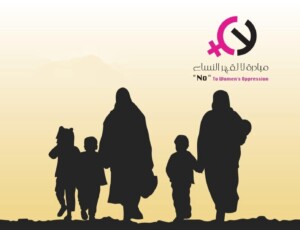Sudan removed from money laundering blacklist
The US Embassy in Khartoum welcomes Sudan’s removal from the Financial Action Task Force (FATF) list of countries with strategic deficiencies in their legal and regulatory framework for combating money laundering and the financing of terrorism.
During the FATF’s plenary meeting on 21-23 October, the organisation “congratulated Sudan for the significant progress made in addressing the strategic anti-money laundering/counter-terrorism financing deficiencies, earlier identified by the FATF and included in their respective action plans”.
In a statement today, the US Embassy in Khartoum welcomes Sudan’s removal from the Financial Action Task Force (FATF) list of countries with strategic deficiencies in their legal and regulatory framework for combating money laundering and the financing of terrorism.
During the FATF’s plenary meeting on 21-23 October, the organisation “congratulated Sudan for the significant progress made in addressing the strategic anti-money laundering/counter-terrorism financing deficiencies, earlier identified by the FATF and included in their respective action plans”.
Sudan will no longer be subject to the FATF’s monitoring under its ongoing global AML/CFT compliance process.
In 2014, the U.S. Department of State Country Report on Terrorism recognised the Sudanese government’s continued cooperation with the FATF.
“The rise of violent extremism poses a shared threat to the Sudanese and American people, and to innocent people throughout the world,” the statement reads.
“Now that Sudan has a legal and regulatory framework in place to combat terrorist financing and money laundering, the US encourages the Government of Sudan to robustly implement its AML/CFT reforms, and welcomes the opportunity to work with Sudan on future counterterrorism efforts, such as denying safe haven to terrorists, blocking access to financial resources, and disrupting the flow of foreign fighters.”
Strategic deficiencies
The FATF is an inter-governmental body established in 1989 by the Ministers of its Member jurisdictions. In collaboration with other international stakeholders, it works to identify national-level vulnerabilities with the aim of protecting the international financial system from misuse. for this reason the body has developed a series of recommendations that are recognised as the international standard for combating of money laundering and the financing of terrorism and proliferation of weapons of mass destruction.
Since February 2010, Sudan committed itself to work with FATF and its regional branch to address its strategic deficiencies. The FATF stated at the time that Khartoum had demonstrated progress but that certain strategic AML/CFT deficiencies remained.
The FATF declined to remove Sudan from the blacklist in 2013, pointing that Khartoum needed to implement adequate procedures for identifying and freezing terrorist assets; ensuring a fully operational and effectively functioning Financial Intelligence Unit; and ensuring an effective supervisory programme for AML/CFT compliance.
In June 2014, the Sudanese parliament endorsed a draft bill for combating money laundering and terrorism financing after regulatory problems appeared. The anti-money laundering body commented announced a visit to Sudan to verify that the process of implementing the required reforms and actions was underway to address deficiencies previously identified.
Sudan, under US economic sanctions since 1996, has limited access to international financial markets. Most Arab and European banks stopped their financial transactions with Sudan after the US Treasury Department fined the French BNP Paribas for sanctions violations in July last year. Recently, the Credit Agricole Bank was ordered to settle charges for illegally processing more than $32 billion in transactions with Sudan and other countries subject to US sanctions.











 and then
and then